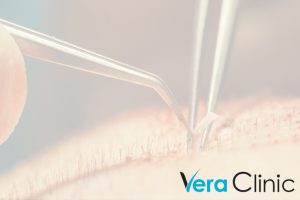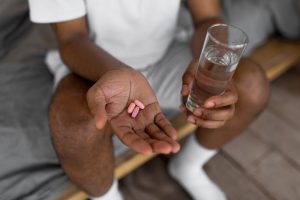Reclaiming Your Sexual Health – Overcoming Erectile Dysfunction With Non-Pharmacological Approaches

Many men struggle with erectile dysfunction (ED), also known as ED. This serious health condition can impact men of all ages, if ever you want a more Pharmacological approach you can visit medsapotek.com.
The treatment for ED is to identify and address the underlying cause. This could include physical issues like hardened arteries, heart disease or high blood sugar (Diabetes), as well as psychological or emotional triggers.
1. Meditation
Erectile dysfunction (ED) is an unfortunately common issue that affects around 1 out of every 10 men at some point in their lives. It may be brought on by stress, anxiety, performance anxiety or other mental health issues.
Fortunately, many of these factors can be addressed with non-pharmacological solutions that will help you conquer your ED symptoms and resume living the life you desire. Meditation has been known to have a beneficial impact on sexual functioning and desire.
Meditation is a type of mindfulness that involves focusing your thoughts on the present moment without judgment or interpretation. It helps you stay present and centered, making it easier to relax and savor your sex experience.
Meditation also has the added advantage of reducing your stress levels. Excess cortisol and adrenaline can increase during times of high stress, leading to irritability as well as diminished libido.
Focusing your attention on what’s happening right now helps keep you from worrying or worrying about future or past events that could be causing stress and anxiety.
Dr. Berglund emphasizes that negative thoughts can interfere with achieving an erection.
Mindfulness-based therapy (MBT) has been demonstrated to be a successful tool in relieving sexual dysfunction among both men and women. A recent study revealed that those who practiced MBT were more likely to report increased sex satisfaction and improved erections compared to those without.
If you’re dealing with erectile dysfunction, talk to your doctor about natural treatments for the issue. It may take several different methods before you find what works best for you.
2. Yoga
If you’re struggling with erectile dysfunction, early ejaculation, or any other sexual health concern, non-pharmacological approaches can help. One such solution is yoga; a spiritual discipline that seeks to balance mind and body through meditation, breathing techniques, and postures.
Erectile dysfunction (ED) isn’t always due to physical factors; it may also be the result of anxiety, stress or other psychological influences. That’s why it’s critical to address the underlying causes rather than simply medicating for symptoms alone.
Yoga, an exercise that incorporates breathing and body awareness, has been found to enhance sexual arousal by relaxing the sympathetic nervous system (the flight-or-flight response). This reduces stress on the body and allows it to relax naturally while releasing hormones naturally.
Another advantage of regular yoga is its capacity to strengthen core and pelvic muscles, improving blood flow to the penis. This improves erection efficiency and prevents premature ejaculation.
If you’re looking to incorporate yoga into your regimen to combat erectile dysfunction, try some of these poses: Paschimottanasana (seated forward bend) and Kapalbhati pose have been proven to improve male erectile function while Uttanpadasana (raised leg pose) has been linked with both males and females experiencing less symptoms of this issue.
If you’re new to yoga or haven’t practiced regularly before, seek advice from a professional trainer who can guide you through the poses and ensure proper alignment. Once comfortable with the fundamentals of these poses, begin incorporating them into your daily life.
3. Diet
While the most common treatments for erectile dysfunction are pills, pumps, cock rings and implants, there are non-pharmacological approaches that can be taken. Diet can help prevent ED in men or support a healthy sexual life once it has been diagnosed.
A balanced diet should provide the appropriate amounts of calories and nutrients. But it shouldn’t be an overly restrictive plan that forces you to forgo all foods you enjoy. Instead, opt for a flexible approach that permits treats now and then without compromising overall health.
Many studies suggest that eating a heart-healthy diet can help prevent erectile dysfunction. This is because heart problems may obstruct blood flow to the penis, leading to lack of erections and other issues with the sexual organ.
Other factors that can impair sexual function include mental health conditions like anxiety and depression. These ailments can negatively impact a man’s capacity for obtaining and maintaining an erection as well as his confidence during intimate moments.
Eating a diet high in fiber and low in sugar can help to reduce the risk of erectile dysfunction. This can be achieved by eating plenty of fruits and vegetables, as well as whole grains, lean meats, and low-fat dairy products.
One way to enhance a man’s sexual function is through exercise. Physical activity not only strengthens muscles and increases stamina, but it can also boost his libido and prevent sexual dysfunction.
Hydrating properly and maintaining a healthy body weight are also key ingredients in having an enjoyable sexual life. If you’re uncertain how much hydration is necessary, speak to your doctor.
4. Exercise
Many cases of erectile dysfunction (ED) are due to physical factors like heart disease, diabetes and atherosclerosis (hardened arteries). Regular exercise can lower your blood pressure, protect these risks from getting worse and protect the artery linings – all key components for improving erections.
Cardiovascular exercises are particularly beneficial for improving both your cardiovascular function and sexual health. By increasing the blood flow to your penis, they help you achieve a stronger, firmer erection.
Kegels, or pelvic floor exercises, are an effective way to strengthen the muscles that hold your penis securely in place and prevent it from shifting out of position. These muscles can be found throughout your pelvis and support all of the organs located within it.
Exercise regularly for at least 40 minutes daily, four times a week over six months to see results. This non-pharmacological approach to treating ED is highly recommended by many experts in sexual health and has been clinically proven successful.
Exercise not only improves your erection, but it’s beneficial for mental health too. Exercising can provide relaxation and self-assurance while decreasing stress or anxiety levels that could be contributing to ED. Furthermore, it may assist with dealing with underlying psychological issues related to erectile dysfunction such as depression.
5. Stress Management
Erectile dysfunction (ED) is a problem that affects up to 30 million American men. It’s an ongoing condition, and its cause can range from stress to genetics. But one of the most prevalent factors associated with ED is stress.
If you’re feeling stressed out and noticing a decline in your sexual function, it’s essential to address the situation promptly. This could include taking some time each day for meditation or doing yoga; alternatively, making changes to your lifestyle to reduce stress levels.
When you’re stressed, your brain can become overrun with thoughts and emotions that interfere with having an erection. This condition, known as psychogenic ED, may be brought on by anxiety, depression or other mental health issues.
Fortunately, many of these issues can be addressed through psychotherapy or counselling. Speaking to a GP may be beneficial and they may suggest attending sex therapy with an experienced professional.
The right treatment can make a huge difference in your sexual life, but if you need something more immediate, try some alternative approaches like acupuncture or mindfulness meditation. Additionally, regular exercise and reducing alcohol intake will help improve sex function as well.
Ro Mind is a service that offers customized treatment plans and check-ins with licensed mental health professionals to help manage stress and other health concerns. They can teach healthy coping techniques and offer advice on avoiding stressful triggers that might be triggering your ED symptoms.







